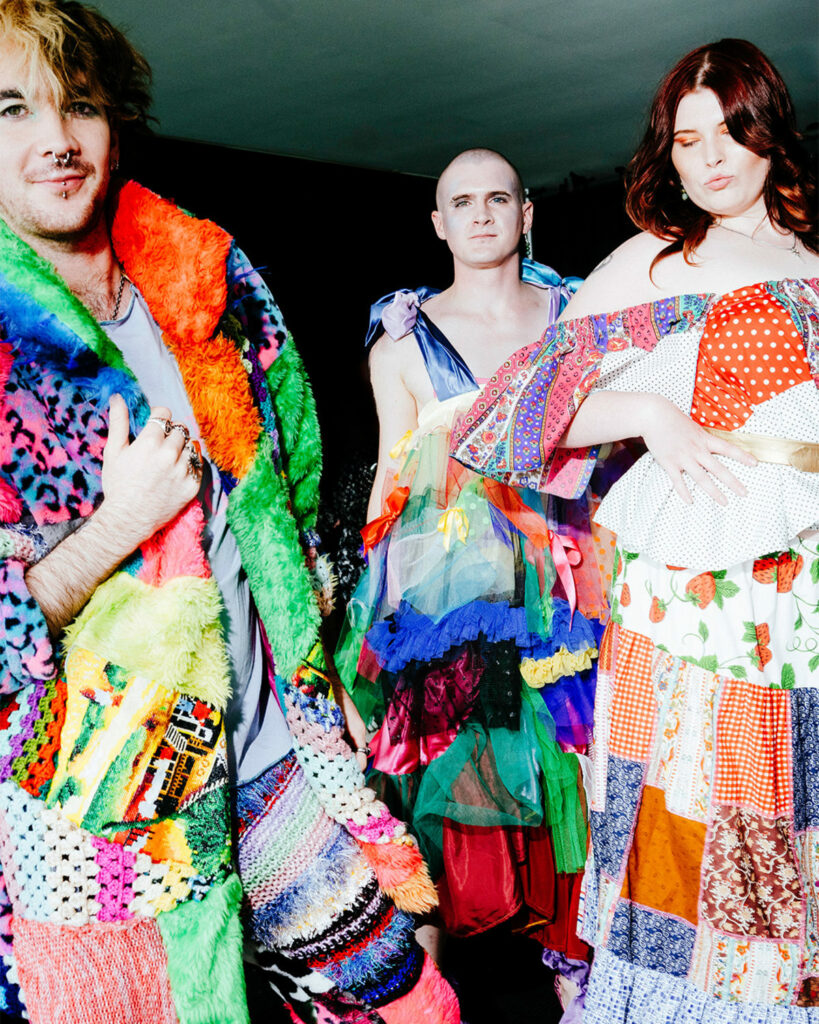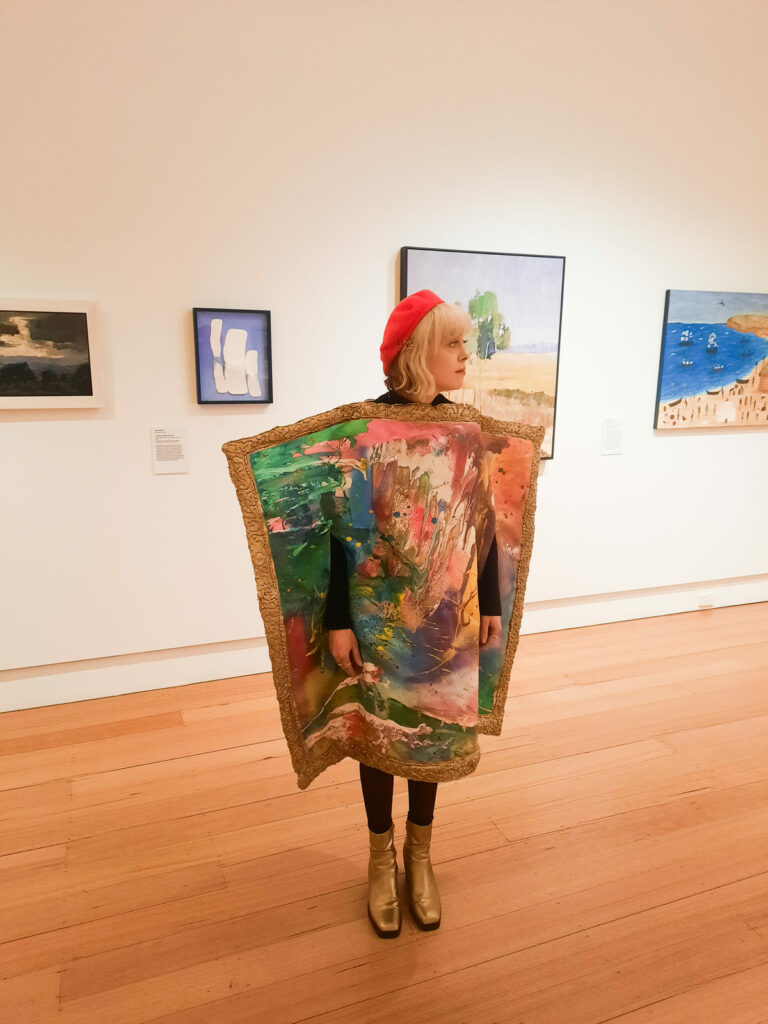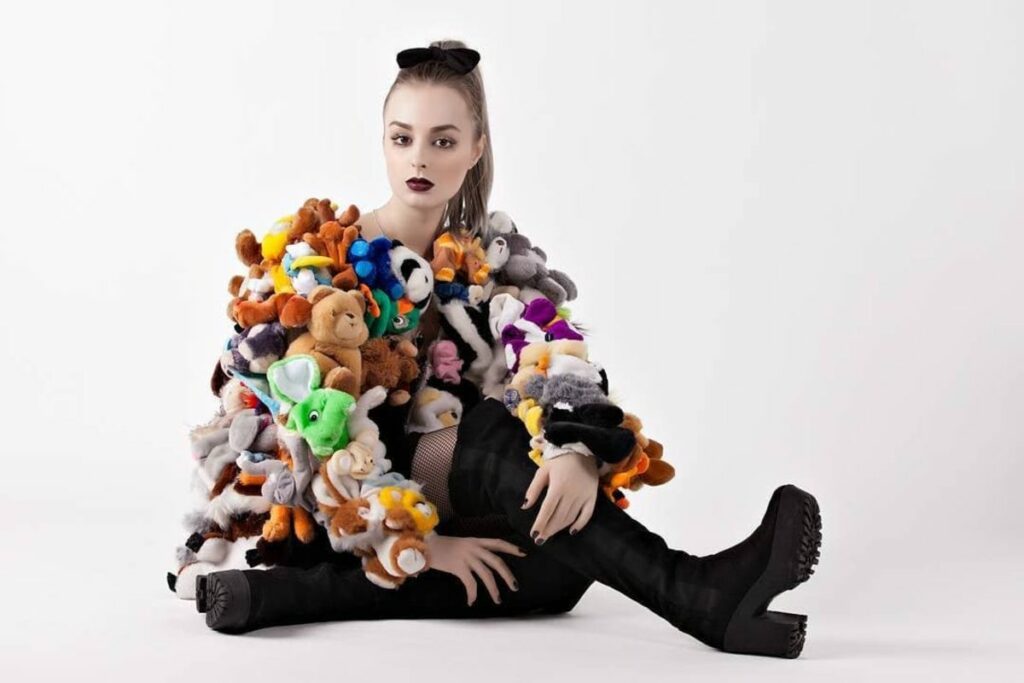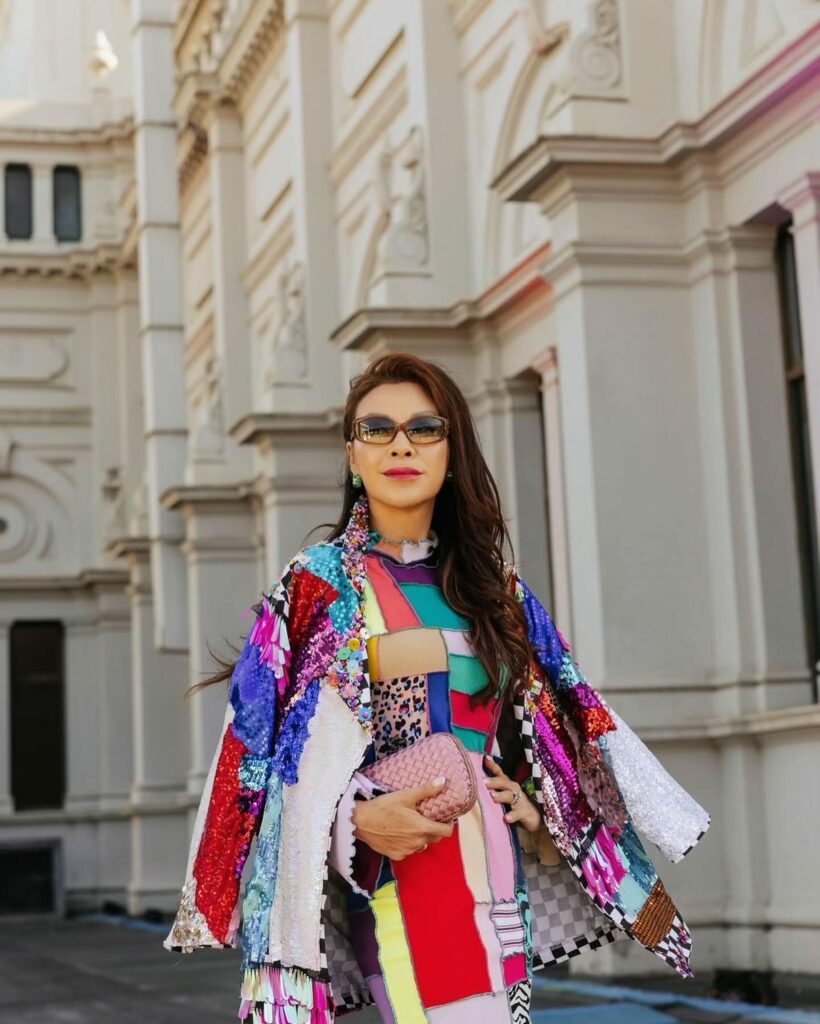Discarded materials and unwanted finds are being transformed into one-of-a-kind pieces by local sustainable designer and artist Emily Rastas.
In 2019, she established Emipeli Design, where sustainability and colour are the two aspects often appearing in her work.
Her journey started with studying fashion, which led her towards costume design, and then special effects, make up and prosthetics after a few years.
A serious back injury put her out of action for six months, limiting what she could do.
“I couldn’t even put on my socks let along sit at a sewing machine for more than 10 minutes,” she said.

The injury led her to start doing installations, painting and creating clothing with hidden fitted elements.
“At the same time as building my strength and confidence, I built my brand.”
Having moved past her back injury, she now does all of her disciplines and runs workshops, with everyday looking different.
“I’m really happy that I’ve found a way to make it work and do all of the things that I love.
“My brain also can’t really do one thing, I think I probably would have really struggled had I chosen a discipline.
“But because I’ve got some many and because I can hop between them and combine them it’s just a lot of fun.”

Sustainability is a big focus for her brand, sourcing her materials from op shops and friends.
“I’ve also made quite a name for myself as the girl that will take whatever you don’t want,” Rastas said.
“I often get phone calls or messages from people saying ‘Hey, I’ve got all of these craft supplies would you like them?’.”
By sourcing her materials this way, the artist has also formed a community with other sustainable designers, sharing the products she doesn’t have a use for.
“I also can’t stand the thought of those things going to landfill when I know they could serve another purpose and live another life.”
The sustainability side of the business developed following Rastas’ injury. Not being able to afford new fabric, she started frequenting op shops.
“I just had this light bulb moment where I was like, I can’t go back, I’ve realised how much exists in the world and I’ve realised the potential of all these things,” she said.
“I love fashion, I love how much it can empower people, I’m really passionate about that, but I also really hate the industry, so the only way that I can consciously be in it, is to be as sustainable as I possibly can.”

Part of her range includes her bedazzled Band-Aid patch, providing her customers with the chance to give their clothing a second life.
“I’ve been trying for so long to think of something that encourages people to lengthen the life of their wardrobe and encourage sustainability, but also low cost items that people can support me and these band aids just came to mind.”
“We all talk about band aids as a metaphor or the physical thing to help an injury, but you could also put a band aid on an injured item of your wardrobe.”
When it comes to designing her pieces and artwork, Rastas said she rarely planned them out, instead doing things that sparked joy or made her laugh.
“If something doesn’t spark joy in my brain, it’s really hard to get me started.
“I call myself an intuitive designer because I find things and then I get inspired by them.
“I don’t really go searching for particular colours or fabrics or anything.”

From a young age, Rastas knew she had a love for clothing and the way it made her feel.
“When I dressed in clothing that made me feel powerful and confident, it just changed my day. It changed how I felt about myself and how I express myself to the world.”
Her brand name, Emipeli, reflects who she is as a person, taking Emi from her name and Peli from her Finnish heritage, meaning play.
“I really do think that my brand it just a reflection of me and where I’m at in my life and what I’m enjoying at that time.”

As part of her work, Rastas has designed costumes for Back to Back Theatre in Geelong, something she said was a career highlight.
“There was 15 main cast members and then extras.
“For the 15 main cast members there were four costume changes – it was the biggest body of work – and there was also sculptural pieces.
“All of those were made out of the most obscure things. There was a broken up clothes line, there was conduit that I cut in between all of the wire strips and then moulded it around into all these shapes.
“It was just the most unwearable thing that I made wearable items out of and that was really cool.”
Ms Rastas grew up in Geelong and moved away at 18. Since then she has lived in Vienna, Dublin, London, Brisbane and Melbourne before returning to the region.
“When I injured my back, I thought that my career was over, but I’m actually more successful here than I’ve ever been.
“The community is massive and I don’t think I would be where I am without them.”
For more information, head to emipelidesign.com or follow her on Instagram @emipelidesign
